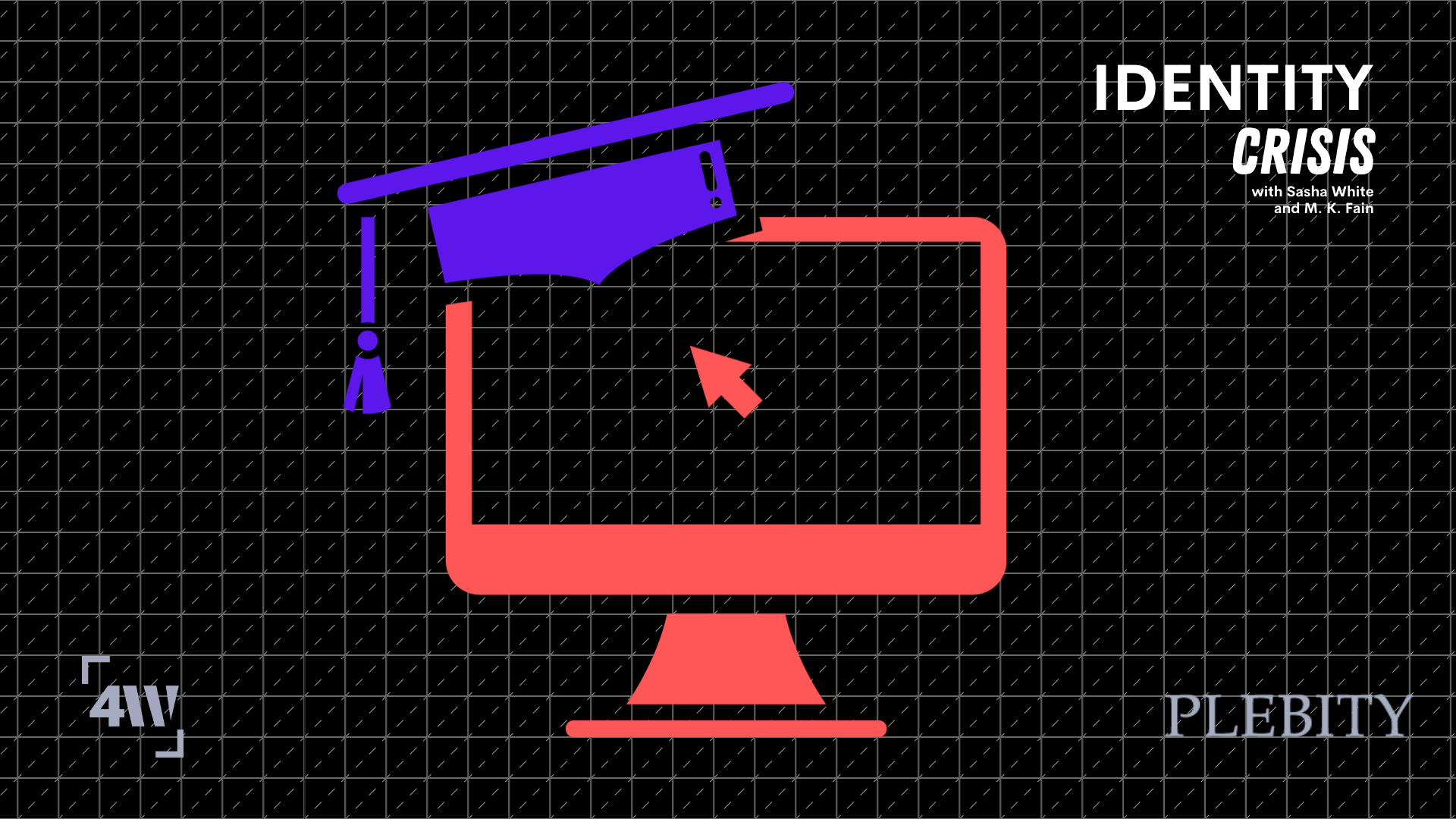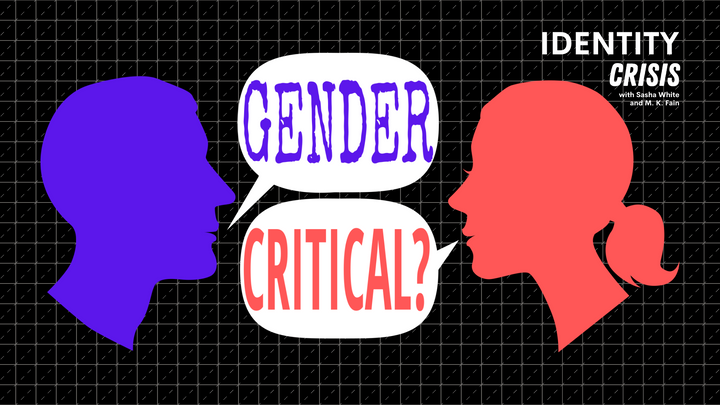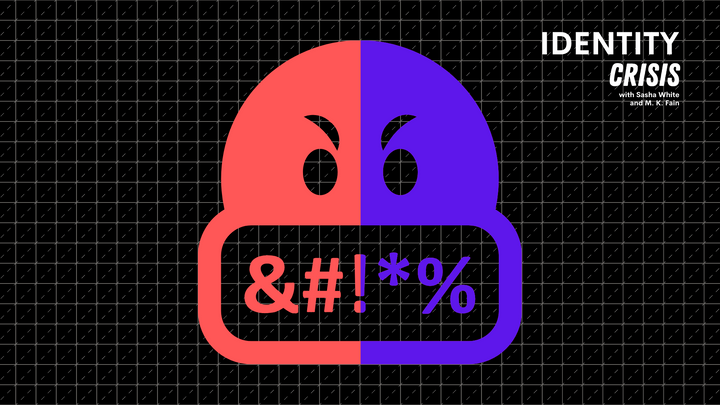Identity Crisis: Do You Need to Educate Yourself?
How the common liberal mantra reveals intolerance

"Identity Crisis" is a new weekly column and podcast for young people struggling with the modern orthodoxy of gender identity ideology—developed in collaboration between Plebity and 4W by M. K. Fain and Sasha White. Each week, we will answer one or two of your questions, both as a running column here on 4W, and in the form of a video on YouTube.
To submit a question, email us at: [email protected]. We may publish your question in full, so be sure to leave out or change any identifying details if you would like to remain anonymous. Or, specify that your question is private and you would rather we discuss it in a general way.
Educate yourself. If you have ever stated an unpopular opinion online, especially about social issues, you’ve probably had this mantra thrown at you. If you’re new to being on the “wrong side” of a particular debate, being told you need to “educate yourself” can be really disorienting. The phrase implies that the speaker knows more than you, you’re undeniably in the wrong, and a little bit of reading will set you straight. But like many mantras on the left today, “educate yourself” has become a meaningless tagline devoid of any real connection to the actual text of the phrase.
A popular progressive Instagram account, @soyouwanttotalkabout (no affiliation with the book “So You Want To Talk About Race”), claims to help educate readers on issues such as race, gender, and politics. The account includes over 400 image slide posts of sound-bite style messages on all of the most popular issues in social justice today. “Choosing to educate ourselves is the first step in becoming allies,” says one post on being a trans ally. “With this education, you’ll be able to better support the trans and nonbinary folks in your lives, and help to create a safer, kinder and more accepting world.” The account also includes, without the slightest hint of self-awareness, a post describing “performative activism” (vs. “authentic activism”) as activism that is “Visible, Audience-driven, and Sustained by public consumption.”
There are pages of comments on these posts thanking the account for the content and helping them learn. The most popular comment, though, appears to be followers tagging in another user to the thread—presumably, to educate them.
“This was a good one for me to share with family & friends that just refuse to open their eyes & minds,” one user commented on a post titled “White Denial.”
“@[username] you should read this,” says another.
The @soyouwanttotalkabout account appears to exist almost entirely to give people a place to go when they need to “educate themselves,” or, when they want their friend to get educated.
But the posts themselves are superficial in depth, often repeat misinformation, and rarely cite sources except in the case of direct quotes. To be fair, Instagram does not lend itself to a more detailed, nuanced, or in-depth format for education—but this is exactly the problem. Well-meaning people who want to “be better” are turning to social media for an education on issues that are often complicated and have real consequences on the lives of others.
This account perfectly encapsulates the problems associated with demands to “educate yourself.” Education in this context doesn’t mean actually learning the breadth of information on the issue, but instead training yourself to parrot surface-level mantras. When questioned on the details of your stance, you don’t need to deepen your education—you just need to shut down debate and tell the other person to educate themselves. What’s happening is not education but rather, as Jones School of Law Professor Adam J. MacLeod put it, “dis-education.” In a 2017 speech to his first-year Law Students, MacLeod confronted his students over the growing trend of illiberalism among his students:
“Before I can teach you how to reason, I must first teach you how to rid yourself of unreason. For many of you have not yet been educated. You have been dis-educated. To put it bluntly, you have been indoctrinated. Before you learn how to think you must first learn how to stop unthinking.”
Today, the professor would probably face disciplinary action for this speech.
When we are told to “educate yourself,” what we are actually being told to do is to allow ourselves to be indoctrinated into a particular ideology. In reality, developing a deep understanding of all sides of the debate is unwelcome, and those providing the “education” are often very misinformed themselves. For example, in their post on being a Trans Ally, @soyouwanttotalkabout made several claims that are logically incomplete (such as creating a circular definition of “gender”), but actually didn’t even represent the critical gender theory ideological perspective accurately (the side they are claiming to educate us about).
Despite many people helpfully instructing me in the past few years to educate myself on trans issues, I was able to immediately spot problems with the thread from the gender theory perspective (such as their list of “common genders,” conflation of “gender” and “gender expression,” and the claim that gender identity “can change over time”). This is because, despite disagreeing with the ideology of gender theory, I am actually very well educated on the issue. I have spent the past three years now writing nearly exclusively about gender identity, I have personal experience with friends and family members transitioning, and I work for a nonprofit which largely focuses on the issue. I am, by nearly every measure imaginable, more educated on the issue than every person who has ever demanded I “educate yourself.”
When someone tells you to “educate yourself,” they are not telling you to actually learn the facts, figures, history, or logic of debate. They are telling you to agree with them. The idea that someone may be educated on an issue and yet still disagree with you on it is inconceivable to people who have been “dis-educated.”
Two people who are equally educated on an issue (imagine they have read all the same books and studies, spoken to the same experts, and listened to the same people with “lived experience”) may still come to a different conclusion.
How is this possible if all you need to be on the “right” side is to simply educate yourself?
The deciding factor in most of our political opinions is not the facts of the case, but rather the values we hold through which we interpret the meaning of these facts.
Most people, to at least some degree, hold many of the same values: individual liberty, societal equality, the sanctity of life, and the desire to reduce harm and suffering in the world. How we will position ourselves on certain issues often has less to do with the facts of the case, or even which values we hold, but in which order we prioritize these values.
To grossly oversimplify the culture war between the “woke” and the “unwoke,” critical theory tends to prioritize social equality over individual liberty (for example, by limiting which groups of people can use certain words or hairstyles to prevent the few instances of racism that could stem from individuals of these groups using them).
When someone disagrees with a value prioritization on issues where values compete (such as individual liberty vs. social equality), education based on your own values is not what is needed to change that person’s mind. The role of facts in changing someone’s stance is to inform them of whether or not a position they support is ultimately upholding their values. Sometimes people apply their values inconsistently, and pointing this out can be either met with defensiveness or provide an opportunity to change their opinion. However, what someone is unlikely to change through the knowledge of new facts is their underlying values and the priorities they assign them.
If we are to trust a definition provided by @soyouwanttotalkabout, intolerance is:
“Not being able to or willing to accept that someone’s ideas or lives are different from our own.”
The inherent intolerance in the “educate yourself” rhetoric is the assumption that someone can not hold or prioritize different values from you. Our values are borne in us from a combination of our genetics/personality and life experiences, and they are core to what makes us individuals. “Educate yourself” is a form of gaslighting—denying the facts we already know and rejecting our own perception of the moral implications of that reality. Unless the person repeating the command is a verified expert in the domain, they probably have no business demanding you to learn anything (see also: the Dunning-Kruger effect). If anything, the very use of this phrase is likely to signpost a person who is actually quite uneducated on the issue—or else they would have been able to engage with you in a more meaningful way.
The truth is, we probably could all stand to have more facts when evaluating our stances on important social issues. Facts help us decide when our values are being upheld or when they are being violated. But when someone tells you to “educate yourself,” they don’t mean engaging in the process of collecting facts and analysing their moral outcome as compared to your value priorities. They mean fall in line. Capitulate. Give up your own values, your own education, your own life experience and do what I tell you—or else.
You can listen to "Identity Crisis" on Spotify, Google Podcasts, or wherever you get your podcasts. Subscribe to updates on Identity Crisis here: identitycrisis.xyz/get-updates
Enter your email below to sign in or become a 4W member and join the conversation.
(Already did this? Try refreshing the page!)





Comments